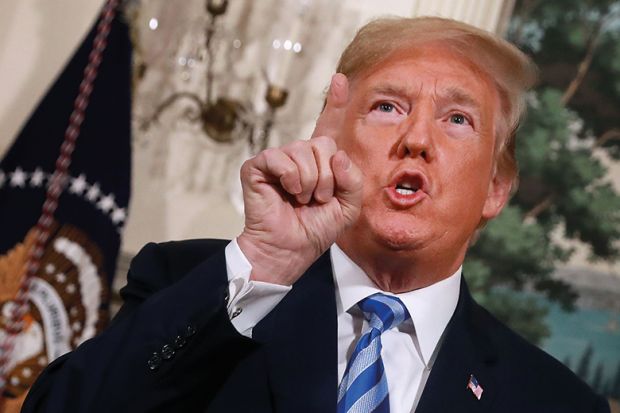Among the courses required of all students at Kentucky’s Berea College is an introduction to university-level reading, writing and thinking that covers free thought, sceptical inquiry and “governmental, religious, and individual oppression”.
Meanwhile, a writing class at New England College, New Hampshire, focuses on how essayists have chronicled civic issues, social justice and political activism.
And a psychology course at Pennsylvania’s Allegheny College teaches how people function together in communities and can “create change for the common good”.
These are examples of how some US universities – reacting to alarm about widespread ignorance about democratic institutions, history and practice – are seeding civics lessons into what their students learn.
“There’s just a lot of evidence that we in the United States are not particularly good at addressing the real challenges we face,” said Andrew Seligsohn, president of Campus Compact, which promotes civic education. “There’s been a significant decline in political knowledge and understanding.”
The advent of the Trump administration has ratcheted up concern about this. But the same partisan bickering that has divided the country has also found its way into the debate about how government and politics should be taught. And as universities try to pick their way through that minefield, some critics say, many are doing less teaching than talking.
“There has been a sea change, but it mostly reflects the noise that’s been made around this,” said Nancy Thomas, director of the Institute for Democracy and Higher Education at Tufts University. University leaders “are not really sure what to do”. Even the term “civics” is a way “to keep it broad and non-threatening”, Dr Thomas said.
The problem for universities begins with the fact that fewer than one in four high school graduates scores at a level of proficient or higher in civics, according to the principal national standardised examination in that subject. Not only do they arrive at university without having learned it, 28,000 students already enrolled at 50 universities, who were tested in civic literacy, got an average of half the answers wrong.
There is more apparent urgency around this now. The theme of the annual meeting of an association representing private universities was “Preparing all students for civic participation”. More than 250 public universities have joined the American Democracy Project, which emphasises the importance of skills such as how to fact-check the news. And more than 100 two-year community colleges have signed The Democracy Commitment, pledging to teach civics.
Campus Compact is launching a university-based initiative called Education for Democracy, to build voter participation, the skills to engage with people who hold opposing opinions, the principle and practice of democracy and news literacy.
One problem is where to fit these things into crowded curricula. Universities once required their students to take American government and politics, but those requirements slipped away in an era of broader choice.
Even if students wanted to take the only course in basic government and politics at one large California university, the National Association of Scholars calculated as an example, the module had the capacity to accommodate a little more than one in 10 of them.
The 31 member universities of Project Pericles, named after the Greek orator and statesman, are working to address this by incorporating civics content into many subjects – an anthropology class that considers how to improve nutrition and healthcare, for instance, or a biology course that raises questions about privacy and family structure.
But that has brought a backlash from conservative groups, such as the conservative NAS, which advocates that a course in traditional American civics designed by an independent body be made a graduation requirement at every university that receives government funding.
The association has objected to the trend of universities promoting community service as a way of teaching civics, saying that it unfairly favours progressive activism and “seems a diversion of the university from its intended mission”, research director David Randall said.
“There is a larger shift where you abandon the search for truth and you embrace the search for change,” said Dr Randall.
Even some state efforts to require more and more media literacy and civics education in primary and secondary schools have run into political resistance.
At a time when “the nation is floundering, if not unwinding”, universities have to find a way to navigate this morass, said Richard Guarasci, president of New York’s Wagner College and chair of the Association of American Colleges and Universities. A former political science professor, he agreed they should stop just talking about civics education – or sprinkling it into a few courses – and return to requiring it.
“Given the illiteracy we’re seeing about politics and government in the United States – and that’s what it is, it’s illiteracy – we haven’t done our job,” Dr Guarasci said. “I think that requires more than just a little bit of it in every course.”
后记
Print headline: US courses tackle ‘civic illiteracy’




